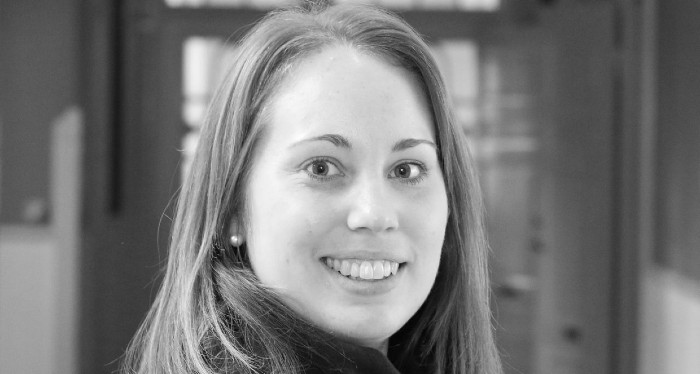
The young adults should have a better and more targeted offer after end cancer treatment, says Maria Aagesen from REHPA. Photo: RAHPA.
07-06-2021
Young adults aged 18-39 who have been through cancer treatment experience a radical life change. They cannot necessarily do the same things as before and need targeted help, support and training to overcome everyday life and regain quality of life.
Most associate rehabilitation with elderly, who needs help with everyday chores. However, cancer also hits young adults and they have other needs compared to elderly after cancer. Unfortunately, no rehabilitation offer targeted young adults stands, and Maria Aagesen, PhD-student at RAHPA, wants to change this situation. In cooperation with colleagues, she has mapped what needs the overseen group require within rehabilitation.
"We know, that young cancer patients have difficulties with returning to their life pre-cancer. We also know, that the right rehabilitation can help them along, but we do not know much about what they need. For that reason, we have opened a dialog with young adults, their family and a range of specialists, so we can target an initiative and give the necessary tools for creating a meaningful life", Maria says.
In practise, the research group asked young adults, who went thought cancer treatment, their family, health professionals, social workers and education representatives as well as the associational life to join a brainstorm on relevant offers.
The exercise led to numerous ideas, which were then sorted into different themes by the participants. After, the participants rated the significant of each idea on a scale from 1 to 5. The thorough work has given Maria great expectations for the results.
"Now we can start to develop an actual rehabilitation initiative. We strongly believe that it is possible to develop an initiative that produces results, as it relies on needs and insights from both previous cancer patients, their surroundings and the people, who will carry out the initiative", she says.
Presentation has an important role
When Marie Aagesen in the end of August takes the main stage at Danish Cancer Research Days and presents her research in front of 500 researchers, clinicians, patients and decision-makers from all over the country, she will grab the change to emphasise the importance of rehabilitation.
"It is a unique opportunity, because it is one of the few fora for people interested in and committed to cancer patients' health and well-being. A wish for qualifying practices' work and thus make a difference for the patients drives me", says Maria Aagesen and adds:
"Many researchers investigate prevention and treatment of cancer, and rehabilitation is less dominant. I am therefore grateful for the opportunity to put rehabilitation on the agenda, and hopefully contribute to creating better lives for people after cancer.
